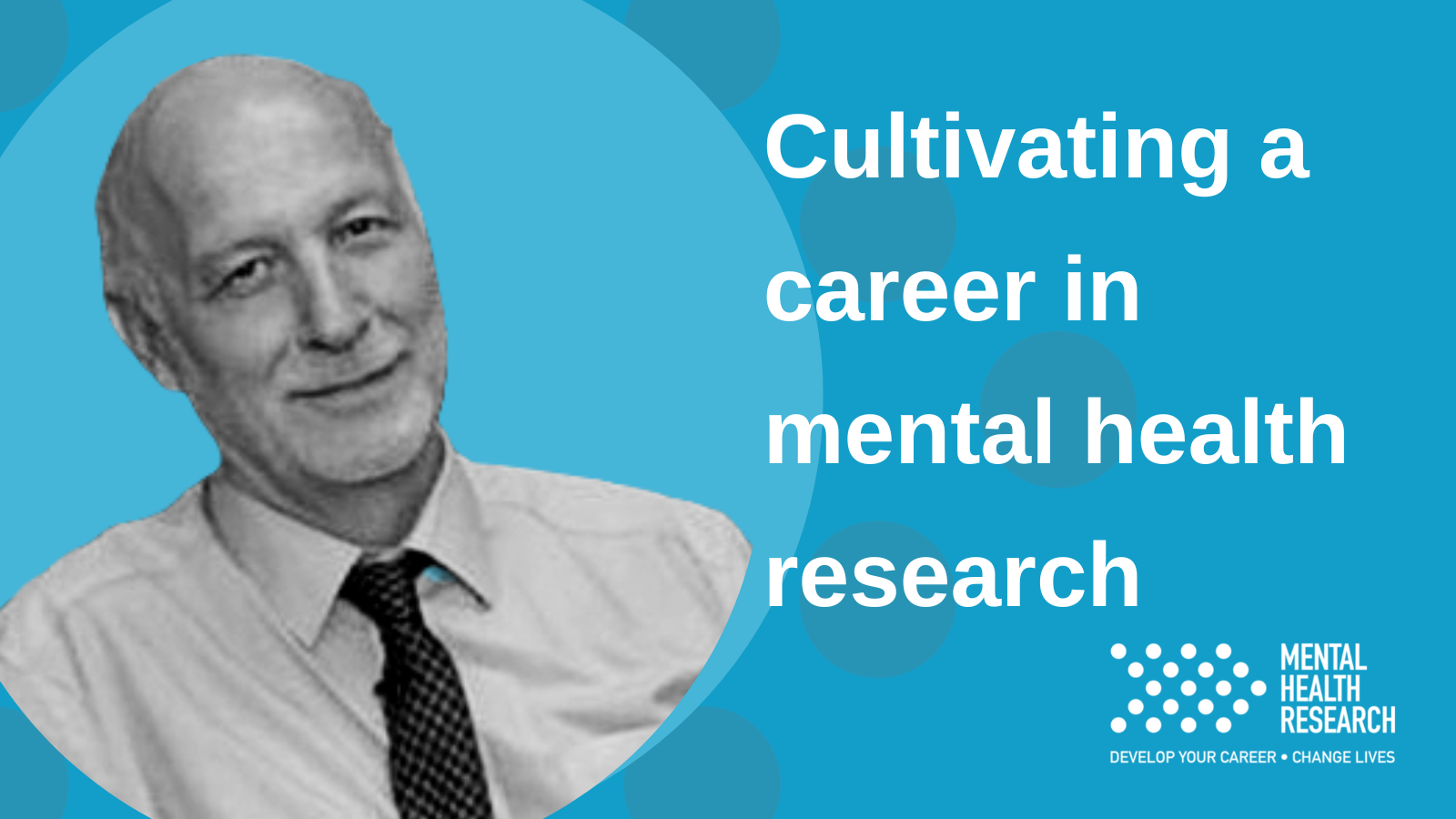
Professor Peter Fonagy is Director of the Division of Psychology and Language Sciences, Chief Executive of the Anna Freud Centre for children and families, and senior clinical advisor to NHS England on children and young people’s mental health policy. Speaking to our GROW programme participants, Peter shared insights about his richly rewarding career in mental health research and where he believes the focus needs to be today.
“I never left my commitment to the client groups that I was serving”
Peter’s life and work are grounded in his early lived experience of severe depression and childhood trauma. Aged 15, Peter arrived in the UK alone as a refugee from Hungary. Unable to understand lessons at school, he was bullied and experienced loneliness and real distress. Peter shared that as a teenager he felt suicidal, and would not have survived this time of intense personal distress without the right kind of therapy at the right time. The impact of therapy set Peter’s direction in his life and work. Despite failing several O Levels, therapy and a return to further education allowed him the chance to study Psychology at UCL, where his academic career took off.
Peter completed a PhD in neuroscience and trained as both a clinical psychologist and psychoanalyst alongside lecturing roles. Every research and advisory role he has held has been grounded in his personal and professional experience, and his motivation to serve others through his work.
Peter emphasised that combining research with professional life is critical. When making career decisions, he urges current and aspiring researchers – whatever professional or lived experience background they bring to their research – to stay grounded in the client or patient groups they’re serving. When making career decisions, he encourages researchers to ask themselves: ‘can I see this helping someone I know?’ and if there are two (or more) options on the table, to consider ‘which option helps more?’.
“Do the research, write it up, do the research, write it up”
Peter has published over 600 academic papers, many of which are widely cited and hugely influential. He highlighted that this only happens when you sit down, embrace boredom and get the writing done!
Peter was keen to emphasise the self-discipline needed to pursue research as the main part of your career in mental health. Focus, attention to detail, humility and discipline are all needed to get the work done.
In the face of multiple rejections that all researchers will recognise, persistence is critical. Peter expressed the importance of embracing the boredom that can sometimes be involved in writing and editing papers. He highlighted the need to take on the feedback of others. Success is all about what happens when you fail, not what happens when you’re successful.
“Papers are the currency of your career – the way you help others”
Responding to a question from one of the GROW participants about the impact of writing papers that may not necessarily be widely read or cited, Peter commented that academic papers are the currency of your career. Papers are what you need to enable you ultimately to make a difference.
“We need to focus on the well, not just the unwell”
The effectiveness of treatment for mental health problems has plateaued. Since the 1970s, there have been improvements in physical healthcare, which are largely down to prevention measures. However, despite continued efforts to refine and improve treatments, Peter noted that there have been no comparable seismic shifts in the understanding of mental health, and only limited improvements in treatments for mental health problems. Where does that leave mental health research? What is not yet well understood is how people stay healthy and happy. Peter stressed that we need mental health research that focuses on understanding and exploring what enables individuals to stay well.
Responding to a GROW programme participant who comes from an arts and humanities background – a field outside traditional clinical professions in mental health – Peter emphasised the need for mental health research to pay more attention to what’s going on outside specific interventions. Relationships, environment, and spirituality all play an important role in wellbeing. Mental health is a huge research challenge that draws in researchers from a range of different backgrounds.
“Careers are something to cherish – like a plant!”
Peter strongly emphasised the need to constantly look after your career. At the early and mid-career stages, mental health researchers need to learn to prioritise their careers.
You need to be strategic, look at the next stop and think about the moves you can make to get there. This will put you in the right position to make a difference at a senior level.
Peter left the GROW participants with the important message that it is essential to take care of your career and look out for it, so that, ultimately, you can achieve your goals in your life as a whole.
